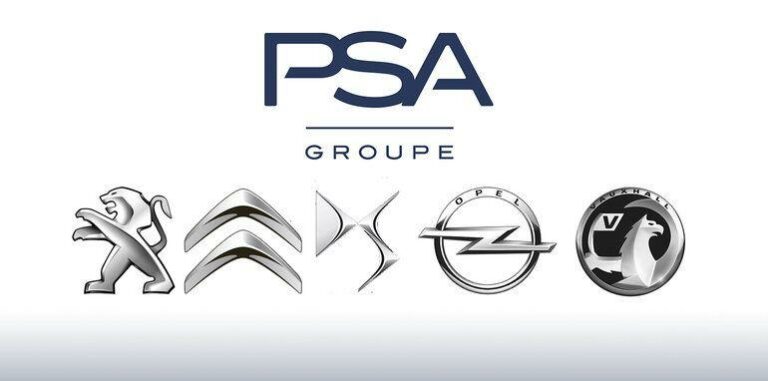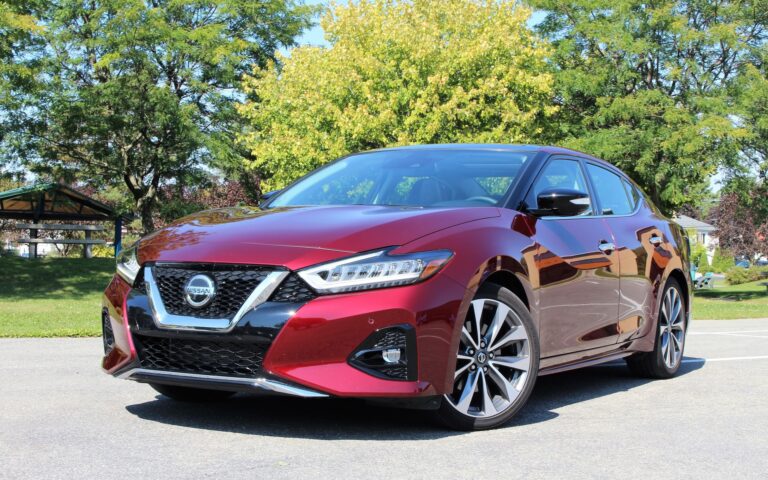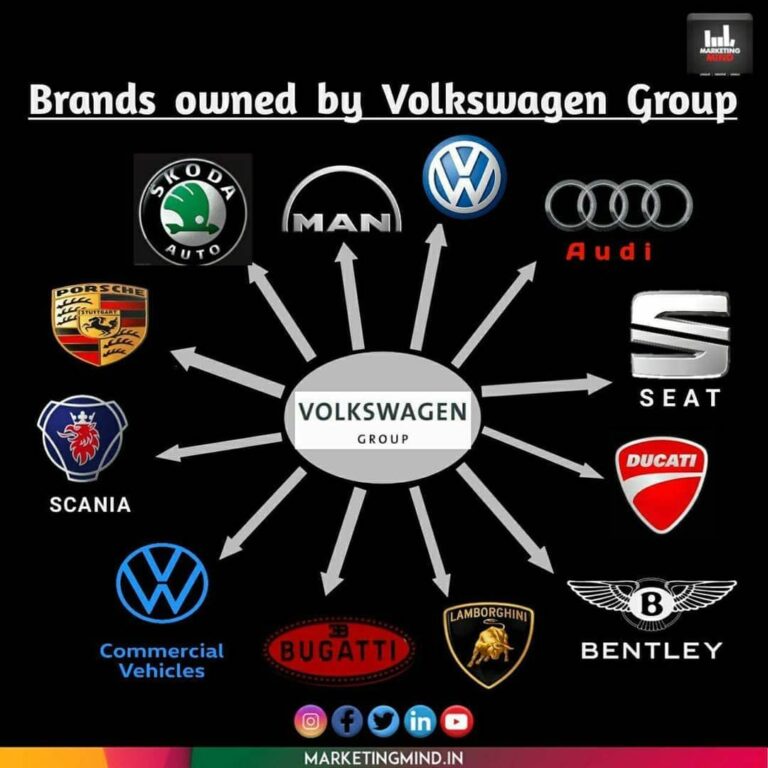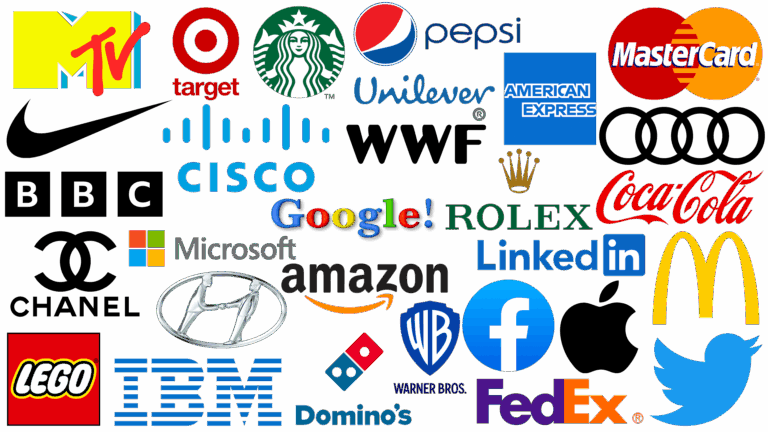What Are The Best Car Brands To Buy Used: Your Ultimate Guide to Smart Secondhand Car Shopping
What Are The Best Car Brands To Buy Used: Your Ultimate Guide to Smart Secondhand Car Shopping cars.truckstrend.com
Buying a used car is a cornerstone of smart financial planning for many consumers. While the allure of a brand-new vehicle is undeniable, the immediate depreciation it experiences the moment it leaves the dealership lot makes a compelling case for exploring the pre-owned market. But with a vast ocean of makes and models, how do you navigate the choices to find a truly reliable and value-for-money used car? The answer lies in understanding what are the best car brands to buy used – those that consistently offer reliability, low ownership costs, and strong resale value, even after years on the road.
This comprehensive guide will delve into the brands that stand out in the used car market, providing you with the insights and actionable advice needed to make an informed decision and drive away with confidence.
What Are The Best Car Brands To Buy Used: Your Ultimate Guide to Smart Secondhand Car Shopping
The Pillars of a Great Used Car Purchase: What to Prioritize
Before we name names, it’s crucial to understand the criteria that define a "best" used car brand. It’s not just about the initial purchase price; it’s about the total cost of ownership over time.
- Reliability and Durability: This is paramount. A reliable car is one that starts consistently, performs as expected, and doesn’t frequently break down. Brands known for robust engineering and quality components will save you from unexpected and costly repairs.
- Maintenance Costs and Parts Availability: Even reliable cars need routine maintenance. Brands with readily available and affordable parts, coupled with straightforward repair processes, will keep your long-term ownership costs down.
- Depreciation and Resale Value: While buying used already bypasses the steepest depreciation curve, some brands hold their value better than others. This means if you decide to sell the car down the line, you’ll recoup a larger percentage of your initial investment.
- Safety Features: Modern safety features like airbags, anti-lock brakes (ABS), stability control, and advanced driver-assistance systems (ADAS) are non-negotiable. Reputable brands often prioritize these, even in their older models.
- Fuel Efficiency: Ongoing fuel costs can significantly impact your budget. Brands that consistently produce fuel-efficient vehicles will offer substantial savings over the lifespan of the car.
- Driving Experience and Comfort: While subjective, a car that’s comfortable to drive and meets your personal needs (e.g., cargo space, seating, handling) contributes to overall satisfaction.

Top Contenders: The Best Car Brands to Buy Used
Based on the criteria above, several brands consistently rise to the top for used car buyers. They offer a winning combination of dependability, affordability to maintain, and lasting value.
1. Toyota: The Undisputed King of Reliability
- Why they’re great used: Toyota’s reputation for bulletproof reliability is legendary, and it’s well-earned. Their vehicles are designed to last for hundreds of thousands of miles with minimal fuss, making them an excellent investment in the used market.
- Popular Used Models: Camry (mid-size sedan), Corolla (compact sedan), RAV4 (compact SUV), Prius (hybrid), Highlander (mid-size SUV).
- Pros: Exceptional reliability, low maintenance costs, excellent fuel economy (especially Prius), strong resale value, vast parts availability, comfortable ride.
- Cons: Can command a premium price even used due to high demand; some find their driving dynamics less exciting than competitors.
- Ideal Buyer: Anyone prioritizing ultimate peace of mind, low running costs, and a car that will simply get them from A to B reliably for years.
2. Honda: A Close Second with a Sportier Edge
- Why they’re great used: Honda shares many of Toyota’s virtues, offering outstanding reliability, efficiency, and smart engineering. Many of their models also offer a more engaging driving experience.
- Popular Used Models: Civic (compact car), Accord (mid-size sedan), CR-V (compact SUV), Pilot (mid-size SUV).
- Pros: Superb reliability, great fuel efficiency, often more fun to drive than rivals, strong resale value, well-designed interiors.
- Cons: Like Toyota, used Hondas tend to hold their value well, meaning slightly higher purchase prices.
- Ideal Buyer: Someone looking for a highly reliable car that also offers a bit more enjoyment behind the wheel, without sacrificing practicality or efficiency.
3. Mazda: The Underrated Gem for Driving Enthusiasts
- Why they’re great used: Mazda has quietly built a reputation for excellent reliability in recent years, combined with stylish designs and class-leading driving dynamics. They often offer a premium feel without the premium price tag.
- Popular Used Models: Mazda3 (compact car), Mazda6 (mid-size sedan), CX-5 (compact SUV), CX-9 (mid-size SUV).
- Pros: Engaging driving experience, attractive and upscale interiors, very good reliability (especially models from 2014 onwards), often better value than used Toyota/Honda.
- Cons: Resale value, while good, might not be as stratospheric as Toyota or Honda; some older models had less competitive infotainment.
- Ideal Buyer: A driver who values an engaging and refined driving experience, stylish aesthetics, and solid reliability without breaking the bank.
4. Subaru: All-Wheel Drive and Safety Champions
- Why they’re great used: Subaru stands out for its standard Symmetrical All-Wheel Drive (AWD) across most of its lineup, making them popular in regions with challenging weather. They also consistently receive top safety ratings.
- Popular Used Models: Forester (compact SUV), Outback (mid-size wagon/SUV), Impreza (compact car), Crosstrek (subcompact SUV).
- Pros: Standard AWD (excellent for snow/off-road), outstanding safety ratings, good ground clearance, strong resale value, loyal community.
- Cons: Older models (pre-2010s) had some common head gasket issues (though often resolved by now); can be slightly less fuel-efficient than FWD rivals due to AWD.
- Ideal Buyer: Those who live in snowy climates, enjoy outdoor activities, or prioritize top-tier safety and stability.
5. Lexus (Toyota’s Luxury Arm): Premium Reliability, Unmatched Comfort
- Why they’re great used: If you desire luxury features and a supremely comfortable ride without sacrificing Toyota’s renowned reliability, Lexus is an excellent choice. They offer exceptional build quality and quiet cabins.
- Popular Used Models: ES (mid-size luxury sedan), RX (mid-size luxury SUV), IS (compact luxury sedan), GX (body-on-frame SUV).
- Pros: Legendary Toyota reliability in a luxury package, incredibly quiet and comfortable rides, excellent build quality, premium materials, good resale for a luxury brand.
- Cons: Higher initial purchase price (even used), premium parts and service costs (though less frequent repairs).
- Ideal Buyer: Someone seeking luxury, comfort, and refinement but with a strong emphasis on long-term reliability and lower long-term maintenance headaches compared to other luxury brands.
6. Acura (Honda’s Luxury Arm): Sporty Reliability and Value
- Why they’re great used: Acura offers Honda’s reliability with a sportier, more upscale feel. They often come with advanced technology and engaging driving dynamics, providing good value in the used luxury market.
- Popular Used Models: TLX (mid-size luxury sedan), RDX (compact luxury SUV), MDX (mid-size luxury SUV).
- Pros: Honda’s excellent reliability base, typically good performance and handling, solid technology features, often better used value than Lexus.
- Cons: Can depreciate faster than Lexus; some find the styling less distinctive than rivals.
- Ideal Buyer: A buyer who wants a reliable, well-equipped luxury car with a sportier character, often at a more accessible price point than comparable German luxury vehicles.
7. Hyundai / Kia (Newer Models): Rapidly Improving Quality and Value
- Why they’re great used: While older Hyundai and Kia models had some reliability concerns, their quality has dramatically improved over the last decade (roughly 2012 onwards). They offer incredible value, modern features, and often the remainder of a robust transferable warranty.
- Popular Used Models: Elantra (compact sedan), Sonata (mid-size sedan), Tucson (compact SUV), Sportage (compact SUV) for Hyundai; Forte (compact sedan), Optima (mid-size sedan), Sorento (mid-size SUV) for Kia.
- Pros: Excellent value for money, stylish designs, modern technology, competitive fuel economy, potentially transferable long warranties.
- Cons: Older models (pre-2012) might still have reliability concerns; higher depreciation than Japanese counterparts, though this makes them great used buys.
- Ideal Buyer: Budget-conscious buyers who want a newer, feature-packed car with good reliability and potentially a remaining warranty, willing to consider models from the last 5-8 years.
Beyond the Brand: Essential Steps for Buying a Used Car
While choosing a reliable brand is a great start, the individual car’s history and condition are equally important.
- Research Specific Models and Years: Not all years are created equal, even within the best brands. Check consumer reliability reports (e.g., Consumer Reports, J.D. Power) for specific model years you’re considering.
- Get a Vehicle History Report (VHR): Services like CarFax or AutoCheck are indispensable. They reveal accident history, previous owners, service records, odometer discrepancies, and title issues (salvage, flood, etc.).
- Pre-Purchase Inspection (PPI): This is non-negotiable. Have an independent, trusted mechanic inspect the car before you buy it. They can identify hidden mechanical issues, rust, or previous damage that a quick look might miss.
- Thorough Test Drive: Drive the car in various conditions – city streets, highways, stop-and-go traffic. Listen for unusual noises, feel for vibrations or pull, test all electronics (AC, radio, windows, lights), and ensure brakes and steering feel solid.
- Negotiate Wisely: Research the market value for the specific make, model, year, and trim. Use any identified issues from the PPI as negotiation points. Don’t be afraid to walk away if the deal isn’t right.
- Understand Certified Pre-Owned (CPO) Programs: Many dealerships offer CPO vehicles, which are used cars that have undergone a rigorous inspection and come with an extended warranty from the manufacturer. They are typically more expensive than non-CPO used cars but offer added peace of mind.
Potential Challenges and Solutions
- Challenge: Finding a low-mileage, well-maintained gem.
- Solution: Patience is key. Expand your search radius, set up alerts on car listing sites, and consider Certified Pre-Owned (CPO) vehicles from dealerships.
- Challenge: Hidden mechanical issues or undisclosed damage.
- Solution: Always get a Pre-Purchase Inspection (PPI) from an independent mechanic. This is your best defense against buying a lemon. Combine it with a comprehensive vehicle history report.
- Challenge: Overpaying for a used car.
- Solution: Thoroughly research market values using sites like Kelley Blue Book (KBB), Edmunds, and NADAguides. Be prepared to negotiate and walk away if the seller isn’t reasonable.
- Challenge: Encountering scams or disreputable sellers.
- Solution: Stick to reputable dealerships or private sellers with clear titles. Avoid high-pressure sales tactics. If a deal seems too good to be true, it probably is.
Comprehensive Used Car Brand Information Table
Here’s a summary of the best car brands to buy used, highlighting their core strengths, popular models, and typical used price ranges.
| Brand | Key Strengths | Popular Used Models | General Used Price Range (Typical) * | Ideal Buyer |
|---|---|---|---|---|
| Toyota | Legendary reliability, low maintenance, high resale value, fuel efficiency | Camry, Corolla, RAV4, Prius, Highlander | $10,000 – $35,000 | Prioritizes ultimate reliability, low running costs, and long-term value. |
| Honda | Excellent reliability, good fuel economy, engaging driving dynamics, strong resale | Civic, Accord, CR-V, Pilot, HR-V | $9,000 – $30,000 | Seeks a balanced blend of reliability, efficiency, and a more enjoyable driving experience. |
| Mazda | Engaging driving dynamics, stylish design, premium interior feel, good reliability | Mazda3, Mazda6, CX-5, CX-9 | $8,000 – $25,000 | Wants a fun-to-drive, attractive, and reliable car that often offers better value than top competitors. |
| Subaru | Standard Symmetrical AWD, top-tier safety, rugged durability, good resale | Forester, Outback, Impreza, Crosstrek | $12,000 – $30,000 | Needs AWD for challenging weather/terrain, values safety, and enjoys outdoor activities. |
| Lexus (Toyota’s Luxury Arm) | Unmatched reliability in luxury, supreme comfort, excellent build quality | ES, RX, IS, GX | $15,000 – $40,000+ | Desires luxury features and comfort without the typical reliability headaches of other luxury brands. |
| Acura (Honda’s Luxury Arm) | Honda reliability with a sporty edge, good tech, strong value in used luxury | TLX, RDX, MDX | $12,000 – $35,000 | Seeks a reliable, well-equipped luxury car with a sportier character, often at a more accessible price. |
| Hyundai / Kia (Newer Models) | Excellent value, modern features, stylish design, improving reliability | Elantra, Sonata, Tucson, Sportage (Hyundai); Forte, Optima, Sorento (Kia) | $8,000 – $25,000 (for models 2012 onwards) | Budget-conscious buyers wanting a newer, feature-rich car with good reliability and potentially a remaining warranty. |
Note: Price ranges are highly variable and depend on the specific model year, mileage, condition, trim level, and market demand. These are general estimates for typical 3-7 year old models.
Frequently Asked Questions (FAQ)
Q: Is it always better to buy a used car than a new one?
A: Financially, yes, in most cases. New cars depreciate rapidly in their first few years, losing 20-30% of their value in the first year alone. Buying used allows you to avoid this initial depreciation hit, getting more car for your money.
Q: How old should a used car be for the best value?
A: Often, the "sweet spot" is a car that’s 3-5 years old. It has already gone through its steepest depreciation, but it’s still relatively modern, likely has lower mileage, and may even have some factory warranty remaining.
Q: What’s a good mileage for a used car?
A: There’s no hard rule, but generally, lower mileage is better. A car with 12,000-15,000 miles per year is considered average. So, a 5-year-old car with 60,000-75,000 miles is typical. However, a well-maintained car with higher mileage (e.g., 100,000+) from a reliable brand can still be a great buy if the price reflects it and a PPI confirms its condition.
Q: Should I buy from a dealer or a private seller?
A:
- Dealers: Offer convenience, potentially CPO options, financing, and sometimes a limited warranty. Prices are generally higher.
- Private Sellers: Often offer lower prices because they don’t have overhead costs. However, it’s "as-is," with no warranty or recourse if issues arise. Requires more diligence on your part (PPI, history report).
Q: What is a Certified Pre-Owned (CPO) vehicle? Is it worth the extra cost?
A: CPO vehicles are used cars that have undergone a multi-point inspection by the manufacturer and come with an extended manufacturer-backed warranty. They are more expensive than non-CPO used cars, but the added peace of mind, quality assurance, and extended warranty can make them worth the premium for some buyers.
Q: How important is a car’s service history?
A: Extremely important! A comprehensive service history indicates that the previous owner cared for the vehicle and followed recommended maintenance schedules. This significantly reduces the risk of unexpected issues down the line. Look for records of oil changes, tire rotations, fluid flushes, and major service intervals.
Q: Can I negotiate the price of a used car?
A: Absolutely! Most used car prices have some wiggle room. Do your research on market value beforehand, identify any flaws or needed repairs from the PPI, and use that information to make a reasonable offer. Be prepared to walk away if your terms aren’t met.
Conclusion
Choosing what are the best car brands to buy used is about making a strategic decision that prioritizes long-term value, reliability, and peace of mind over initial flash. Brands like Toyota, Honda, and Mazda consistently deliver on these fronts, offering robust vehicles that stand the test of time. Lexus, Acura, Hyundai, and Kia also present compelling cases, each with unique strengths.
Ultimately, a smart used car purchase is a blend of brand reputation, individual vehicle history, and thorough inspection. By focusing on proven performers, conducting diligent research, and following the essential buying steps, you can confidently navigate the used car market and drive away with a vehicle that serves you well for years to come, without the financial sting of new car depreciation.




